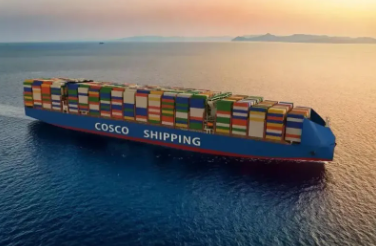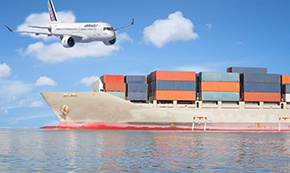All categories >
Which is more cost-effective, double-clearing tax or double-clearing tax in shipping?
Categories:
Time of issue:
2024-10-18 18:08
Which is more cost-effective in shipping, double-clearing tax or double-clearing tax, needs to be judged based on a combination of factors, as follows:
From a cost perspective:
When commodity prices are low: If the value of the goods is low, double-clearing tax may be more cost-effective. Because taxes and fees account for a relatively small proportion of the total value of goods at this time, logistics companies can obtain more favorable tax discounts through batch processing customs clearance procedures and include them in the freight. This avoids the additional tax burden on the buyer when receiving the goods, and also reduces the formalities and time costs of paying taxes separately. For example, for some small daily necessities, ordinary decorations, etc., the overall cost of choosing a double-clearing tax shipping method may be relatively low.
When commodity prices are high: For high-value goods, it may be more economical to double-clear non-tax. Import taxes are usually proportional to the value of goods, and high-value goods are subject to higher taxes. If you choose double-clearing tax, all of these taxes are included in the shipping cost, which will result in an increase in the total cost. Double clearance without tax allows buyers to pay their own taxes at the time of receipt, which may save money depending on the circumstances. For example, expensive electronic products, luxury goods, etc., pay their own tariffs may be lower than the fees included in the tax package service.
Considering the type and nature of the goods:
Ordinary goods: If it is ordinary ordinary goods, there are no special regulatory requirements or additional tax items, the cost difference between the two methods may not be too large. But if the consignor is interested inCustoms clearance processIf you are not familiar with it, or do not want to spend time and energy on customs clearance, it will be more convenient to double-clear tax, and its additional convenience value may make it more cost-effective.
Special or sensitive goods: For some special goods or sensitive goods, additional customs duties or VAT may be required, or there may be special requirements and procedures in the customs clearance process. In this case, double clearance tax may be more appropriate, because the logistics company has more professional experience in handling these special cases, can ensure the smooth customs clearance of the goods, and the relevant costs have been included in the freight, to avoid the consignee due to not familiar with the situation and generate additional costs or customs clearance risk. For example, electronic products containing batteries, cosmetics, food and other special goods.

From the perspective of customs clearance capacity and risk:
Shippers with strong customs clearance ability: If the shipper has strong customs clearance strength, has a professional customs clearance team or has rich customs clearance experience in the destination country, can efficiently and accurately handle customs clearance affairs and reasonably reduce tax costs, then choose double clearance without tax can save costs. And their own customs clearance can better grasp the progress of customs clearance and the transport status of goods, reduce the risk caused by improper operation of logistics companies.
Shippers with weak customs clearance ability or lack of experience: For shippers with weak customs clearance ability or no relevant experience, double-clearing tax is a more worry-free option. The logistics company is responsible for completing allCustoms clearance proceduresAnd tax payment, the shipper does not need to worry about the problems and risks that may arise in the customs clearance process, and can focus on the production and sales of the goods. However, the shipper needs to choose a reputable and experienced logistics company to ensure the smooth progress of customs clearance.










